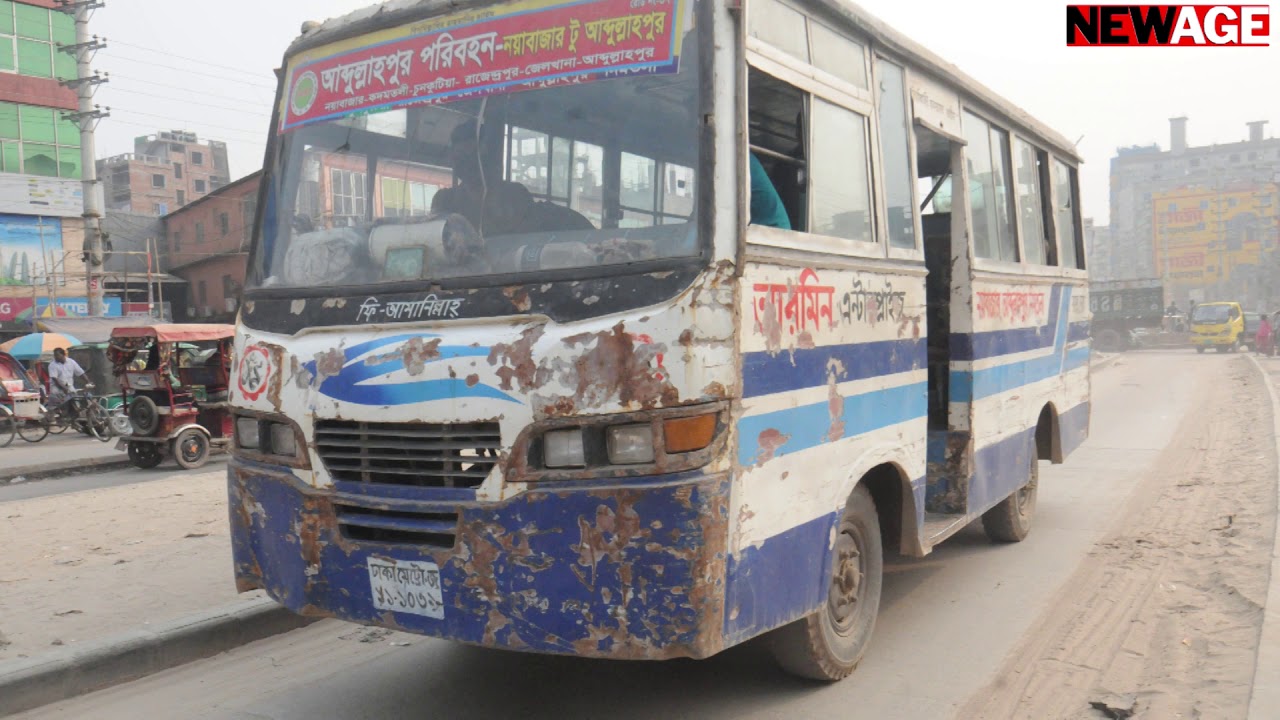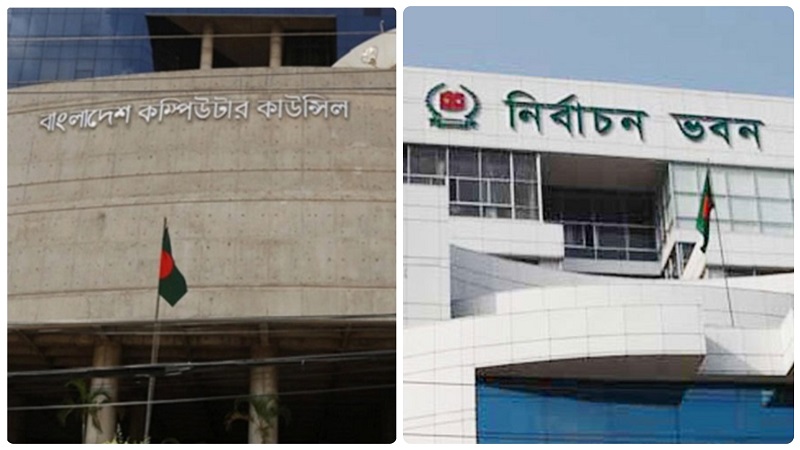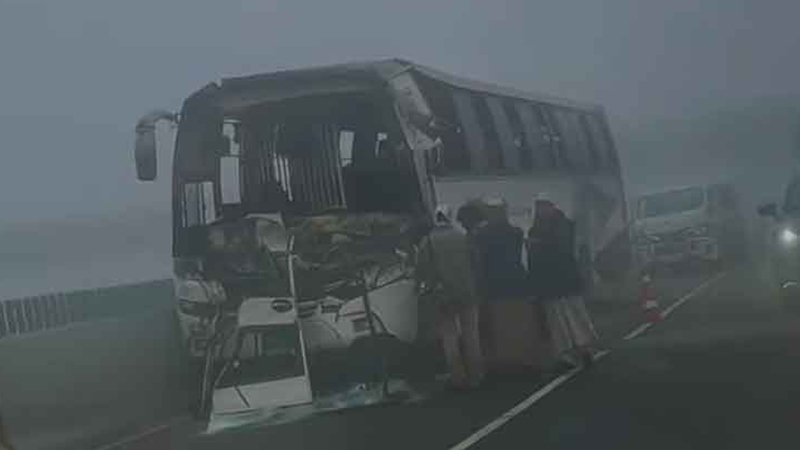Worn out, ragged, and modified vehicles have put the country’s public transport system in disarray, with no new investors showing interest in joining the business amid existing monopolies.
The buses, compressed natural gas-run auto-rickshaws, four-wheelers, human haulers, and taxicabs all run with dented bodies, almost no paint, broken glasses, and windows, keeping the public hostage.
Traffic congestion, unskilled drivers, and lax monitoring by the authorities were few other reasons blamed for the lack of new investment in the transport sector.
Extortion, lack of parking spaces, poor road conditions, and hikes in fuel prices are also blamed for the situation.
This has led to a crisis in the public transport system despite huge demand.
Unholy competition among buses, even those from the same company, for more trips reduces buses to shambles, causing the public to suffer.
People are seen crowding buses and human haulers in inhuman conditions, especially in the capital. Those who are reluctant to use them are forced to pay high fares to find rickshaws.
Taxicab services are also on the verge of extinction in Bangladesh amid no new investment amid the increasing popularity of ridesharing services.
Abdul Matlub Ahmad, chairman of Nitol-Niloy Group, told New Age that the return of investments in the transport sector was difficult to recover due to traffic gridlock. ‘The competition in the bus business is fierce, which keeps profit low,’ he said.
Matlub proposed to keep the number of vehicles limited in Dhaka and run buses under a few selected companies.
To attract new investors, he believes that strict rule enforcement, an adequate number of public transportation vehicles, and fixed public transportation fare rates are required.
Senior urban planner and the president of the Institute of Architects Bangladesh, Mubasshar Hussein, told New Age that no new investors were interested in the transport sector as it lacked discipline.
He said that buses run with damaged bodies, almost half of the drivers are driving buses without a licence and the buses compete with each other, which makes new investors feel discouraged, he said.
‘Dhaka Chaka in Gulshan and Circular Bus Service in Hatirjheel show us that people will follow rules if everything is brought under the system,’ he said, adding, ‘We need rationalisation of bus routes to bring buses under the control of a few companies.’
The system is yet to be implemented as 99 per cent of the money invested in this sector is illegal and many buses are owned by influential government officials, he observed.
Though the road transport sector in Bangladesh is mainly operated by the private sector, new investments are not coming due to some challenges, said Centre for Policy Dialogue research director Khondaker Golam Moazzem.
‘Influential transport owners and workers’ groups with political connections control the sector. They indulge in the culture of extortion and poor quality service. The government did not play the role it was supposed to play to control the sector,’ he said.
Moazzem found the current public transport system in Bangladesh inappropriate for a middle-income country and urged the government to implement the laws and rules strictly to attract new investment.
Lack of institutional knowledge of sector people is a hindrance to attracting new investors, said Shymoli NR Travels managing director Suvenker Ghosh Rakesh.
He said that he joined the transport business, as it was his family business since 1968.
‘Mostly uneducated people come into the transport business because they don’t have other skills,’ he said, adding that the drivers are the same. ‘They learn the trade by starting a career as child workers.’
‘With traffic congestion, poor road conditions, and lack of strict monitoring, authorities also discourage investors in this sector,’ said Suvenker, also the joint secretary of the Bangladesh Bus-Truck Owners’ Association.
Bangladesh Road Transport Owners’ Association secretary general and Ena Paribahan managing director Khandakar Enayet Ullah said that the new investors were not interested as there was no return on the business in the capital.
‘If the vehicles cannot move due to traffic congestion, then how many trips can the buses make per day? he asked, urging the government to ease traffic congestion to attract more investors.
An official of Toma Construction and Co. Ltd., which joined the taxicab service business in Dhaka in 2014, said that the company has so far incurred Tk 38 crore in losses as the service could not get popularity due to traffic congestion, police cases amid lack of parking spaces, driver management, and the dilapidated condition of the roads.
He added that the company was not considering investing more in the service.
Professor Shamsul Haque, a former director of the Accident Research Institute, said that the Bus Route Franchise system could be a solution to the problem.
It will stop extortion and corruption, and corporate investment will come into the sector, he said.
Dhaka Transport Coordination Authority executive director Shabiha Pervin blamed the investors for being impatient.
‘Investors always want a quick return and profits. They should wait for the breakeven point in the transport business,’ she said, adding that the government was trying to bring all buses in the capital under the control of a few companies.
Road Transport and Bridges Division secretary ABM Amin Ullah Nuri said that the investment in new buses is not increasing due to the hike in fuel oil prices.
‘Investors always consider interest in any investment. If they see they will not make any profit, they will not invest there,’ he said.
He claimed that some buses are added daily to the roads and said that taxicabs on the roads were replaced by cars as many people can afford them now.













